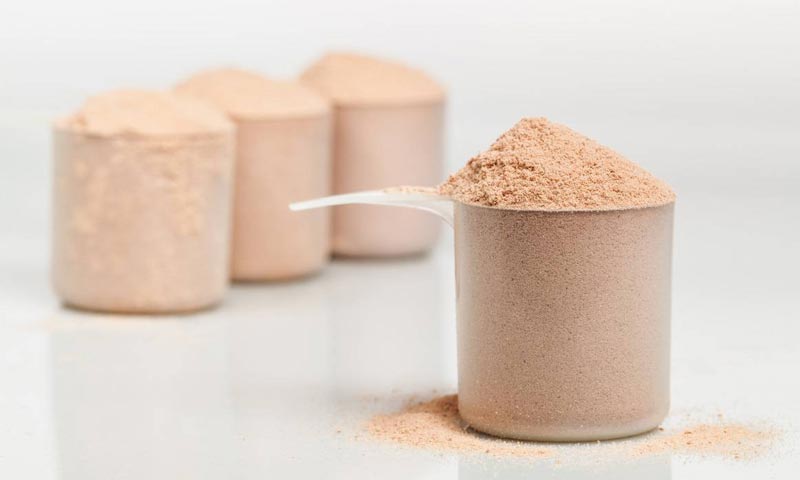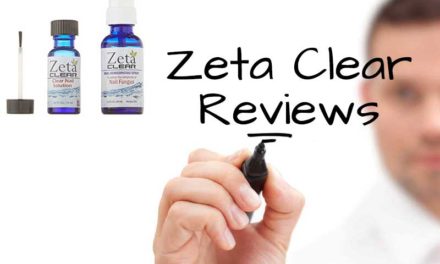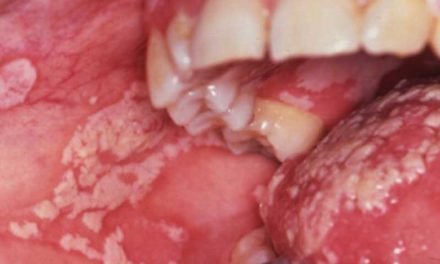A very popular supplement in bodybuilding is whey protein because it is very useful for muscle grow and repair. Whey protein is found in milk along with casein and other substances and it is used for making cheese and dairy products. Some medical studies revealed that there is a connection between acne breakouts and whey protein supplements. Although the primary factor for acne is a genetical predisposition, whey protein stimulates hormonal activity and can cause a breakout of acne.
What is Acne?
Acne is a skin condition most commonly found in teenagers. It is characterized by the appearance of pimples and red spots on face, shoulders, chest and upper back. Even if usually it affects adolescents and young adults with ages between 12 and 25, it isn’t a rare situation to affect adults as well. Even if the primary cause of acne was not yet determined, it is believed that it can be triggered by genetics and the hormonal imbalance which occurs during teenage years. Whey protein and dairy products also carry a high potential of stimulation the overproduction of sebum at certain people, which can cause acne.
How can whey protein supplements cause acne?
Recently, medical community focused its attention on the effects of whey protein in the attempt to find out if there is a connection regarding the acne breakouts. One of them observed five men who had acne problems while taking whey protein but once they stopped using the product there was a relief of the acne symptoms. Meanwhile, in Brasil, another study conducted on 30 participants reached the same conclusion: Breakouts of acne are a result of whey consumption. Various brands of whey protein were used to determine if the quality of the product makes any difference and the conclusion was no. Regardless of the product, whey protein causes acne outbreaks.
Whey protein is very popular among bodybuilders and athletes due to its properties of increasing the muscle mass, and there are two main types:
- Whey protein concentrate, which contains more of the intact milk hormones and is worse than whey protein isolate when it comes to causing acne.
- Whey protein isolate has undergone an intense process to destroy as much of the “non-protein” stuff as possible, but still in may cause acne
Consuming whey protein has the same effect on the skin like any other milk product: it stimulates the production of insulinlike growth factor-1, also known as IGF-1. According to The University of New Mexico, this is a hormone associated with muscle growth. As a side effect of the hormone, the sebum production is increased, which is a factor leading to acne. When consumed, whey protein increases the insulin levels which leads to excess oil production, overgrowth of skin cells and inflammation on the skin causing, on those prone, acne lesions.
IGF-1 is usually found in the mother milk, and it helps the baby grow and develop muscles. Normally, the role of this substance in the body is to make sure the hormones remain within normal parameters and don’t cause reactions like acne. Adding foreign IGF-1 into your body doesn’t have the same effect, but instead, it can stable the hormones and cause health problems like severe acne. This situation was confirmed by medical studies conducted on bodybuilders who consumed whey protein.
The process used by IGF-1 from whey to cause acne is simple. First, it determines the skin to produce more oil than usual and makes skin cells multiply rapidly. The excess oil gathers the dead skin cells inside the pores before they have the chance to get out normally. As a result, the pores of the skin get clogged. In most cases, the whey protein powder was pasteurized twice, so in addition to all these problems, the proteins are denatured forming a complex protein and sugar cross-links, which the body can’t digest easily. If your diet also included gluten, there are high chances for the foreign particles to end up into the bloodstream and surface the skin in the form of swelling, redness, and acne, because the gluten damages the gut lining and the food particles can pass through.
IGF-1 and Insulin Make Acne Worse
Whey protein is one of the most popular supplements in the sports world because it helps athletes improve the physical condition and has anabolic effects. Because most supplements bring benefits to the targeted health problem and side effects to others, many people reported acne breakouts during the treatment with whey protein. At first, these symptoms were ignored or dismissed as pure coincidence, but there are recent medical studies which found a connection between whey protein and skin eruptions.
Some doctors still refuse to accept the fact that diet has an influence over acne, but it is well known that including dairy products into your diet can increase the levels of insulin up to three or six times over the maximum recommended, compared to their low glycemic index. Milk has a high concentration of IGF-1 from bovine which remains alive in spite of the pasteurization process. Because of both types of IGF-1, human and bovine, has the same amino acid sequence, they bind together.
When the insulin is spiked like this, it becomes a problem for the skin because in ca worsen the acne, just like IGF-1 does. These two hormones, insulin, and IGF-1 are related, and they work together in ways scientists have not yet fully understood and produce similar reactions in the body. Both can encourage the uncontrolled growth of cells in the sebum glands, also known as sebocytes.
People diagnosed with acne suffer from overproduction of sebum, and this problem has been linked to the existence of high amounts of IGF-1 in the body as well. The side effects of high IGF-! go beyond this issue. It can also stimulate the production of androgens in various locations in the body, which in their turn, determine even more production of the sebum and represent one of the main factors in causing acne. This growth hormone is thought to increase the production of testosterone and androstenedione in both ovaries and testicles. In the skin, it stimulates the transformation of testosterone into a more powerful androgen, DHT due to the activity of 5 alpha enzyme.
The most important thing in this equation is that whey protein, just like IGF-1, regardless its form, powder or in dairy products, triggers the body to increase the insulin production and as a result, it could contribute to the appearance of acne.
Protein powder supplements available on the market in addition to IGF-! also contain sugar, artificial colors, artificial flavorings and artificial sweeteners. None of these ingredients have a beneficial influence over acne in particular or health in general. 100% pure whey protein is less damaging to the skin than in combination with the above ingredients, but even in its purest form it still has the potential to cause acne outbreaks.
Must one Choose Between Clear Skin and Big Muscles?
A skin free of any blemish or acne signs is just something a dedicated bodybuilder needs to risk and choose whey supplements to get the desired results. The bodybuilding lifestyle is not a very comfortable one, with or without the whey protein. Many people reported aggravated acne outbursts after taking supplements based on whey or eggs. He symptoms improved or disappeared completely once these proteins were not part of the diet anymore.
Milk and all products obtained after it was processed (yogurt, cheese, cream, skim milk, sour cream and so on) represent one of the biggest threats for the skin and acne because it contains whey protein. If your diet includes these products and you, just don’t seem to find a way to reduce acne, try to give them up and see if there are any improvements.
As helpful as whey protein supplements are for muscle gain and weight loss, this product may cause severe acne in people prone to this condition. These products are well known as a very concentrated source of protein and many other nutrients which man that by serving one dose of these supplements you intake the equivalent amount of proteins from two r even three meals, more than enough to cause side effects. In addition to all these, whey protein stimulates the production of anabolic hormones, IGF-1, which increase lipid and fat production inside the sebaceous glands resulting in moe or less severe acne problem, according to each predisposition to this condition. Another important trigger for acne is the increased level of testosterone in both men and women.
Whey protein is not the single enemy to blame for acne outbursts. This skin condition is triggered by a group of factors including high-calorie diet, simple and refined sugar, the wide range of preservatives and other chemicals present in our foods. It was noticed that teens from the western countries have acne in a much larger percent than those from the other countries and a major reason is a diet.
How can Acne be Controlled if Someone Uses Whey Supplements?
If you decide to take whey protein supplements, it doesn’t necessarily mean that acne will take control over your life. There are some steps you can take to prevent severe reactions to this substance. When it comes to skin conditions, it is always easier to prevent than to treat. With small lifestyle adjustments and some changes in the eating habits the symptoms generated by whey protein could be managed.
- Eat more vegetables – instead of taking the needed cards from bread and pasta you can have then in the form of vegetables fresh or juiced. Juice made of veggies is rich in phytochemicals which help the body eliminate toxins and free radicals. Juice is the best way to consume vegetables because this way they are not processed, so all the nutrients and antioxidants are intact.
- Include turmeric in the diet – its anti-inflammatory properties are more effective if taken along with pepper or pepper extract. This is the only way to absorb its main active ingredient, curcumin and one capsule of turmeric a day should be enough to help to control the acne outburst.
- Wash the skin with guava soap – this product should be available in herbal stores, and it helps improve the quality of the skin because it is a natural product, with no chemicals added.
- Regular baths are a must – whether you like it or not, you must take wash the skin thoroughly after each exposure to the pollution and other external factors. This way the chances of developing one drop with 50%.
- Stay hydrated – water is part of our bodies and staying hydrated is essential for keeping the skin healthy. Water helps the most important detox agent for the body because it can eliminate that dangerous chemical which causes acne and maintain the skin young and glowing.
- Wash hands as often as possible – our hands are the first to enter into contact with germs and bacteria and without realizing we touch the face, eyes, lips and other sensitive areas of the body spreading the risk for infections. Making sure the hands are always squeaky clean is essential in preventing contamination
- Desensitize – in other words the body gets used to certain stimulus and its reaction become less and less severe until they completely fade away. It could happen in the case of allergens. For example, if someone is allergic to a particular food, eating that product on a daily basis will make the body adjust to its presence until it doesn’t bother anymore. Same thing could happen to whey protein. At first, it could cause severe reactions, but after using it for a while, these problems might fade away. Of this advice does not apply for severe allergic reactions.
These measures can apply for those who intend to start using whey supplements to improve their looks and have a more appealing body without ruining their appearance by getting acne, as well as by those who just want to keep a clear skin. Having a healthy diet and good hygiene is essential for preventing acne outbursts and maintaining a good overall health.
Conclusions
Whey protein is a very popular product among bodybuilders because of its ability to increase muscle mass. Unfortunately, its benefits are sometimes canceled by the side effects it may cause. Whey protein is not the only or the primary trigger for acne, but in the case of people prone to this skin condition, it can drastically increase the chances. If you are committed to obtaining fast results in building muscles and want to try this product, you could give it a try and make sure you take all the possible precautions to limit the damage it can cause on the skin.
If you think there is a connection between whey protein consumption and your frequent acne outbursts, the best action to take is to stop using those supplements and schedule an appointment with a doctor for further recommendations. Reducing or even stop completely the consumption of dairy products might bring additional benefits to the skin condition. These dairy proteins could be replaced by eggs, soy, brown rice, pea or hemp because they have fewer chances to cause acne. Fish poultry or lean meat are other important sources of healthy proteins.
Resources:






